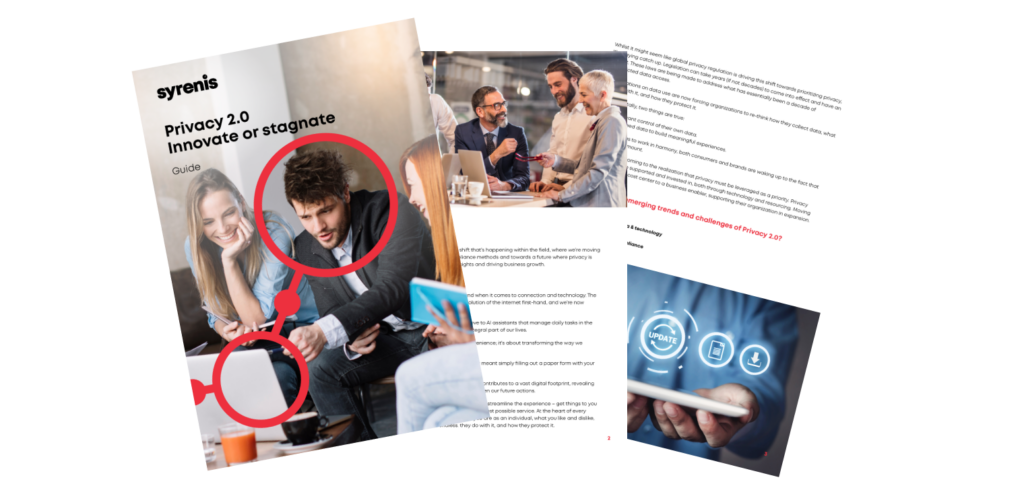As consumers we have all become accustomed to receiving the benefit of “free” services – especially online services – in exchange for our personal information. For example, the traditional model for social media apps such as Facebook, Twitter, and TikTok is that the providers offer services for free, and in return they track “free” users and make their money on targeted ad sales rather than on subscription fees.
Beyond social media: The broader ecosystem of free content
This model is not just limited to the social media arena. We all view online news articles, stream movies and TV shows, listen to music, and visit other online content sources for no cost other than the inconvenience of seeing advertisements.
In return for this, we agree that providers of these services can make their money in other ways, including by selling targeted advertisements to us.
Meta’s regulatory struggles: A cautionary tale
However, recently social media company Meta has seen regulatory push-back on both its “free” model for Facebook and the alternative “consent or pay” option. Often the initial target for privacy enforcement, this social media giant’s struggles in navigating this complex privacy issue can serve as the early warning system for other companies considering their monetization strategy.
A close look at the winners and losers from Facebook’s recent “consent or pay” history in the global marketplace can help guide other companies to make less problematic (and expensive) decisions.
Like its other social media brethren, Facebook has traditionally offered people access to its platforms and applications for no cost to users. Rather than charging subscription fees, Facebook instead makes a sizable portion of its revenue through digital advertising. In return for “free,” users of the Facebook platform agree that Meta can collect information about them and their activities on the platform – what topics they like, what interests they have, and what products in which they express interest.
This information is like gold to marketers. Those marketers then buy targeted ads on Facebook and other Meta platforms/apps, as well as on affiliated third-party applications and sites.
The system works, as evidenced by Meta’s reported revenue of almost US $135 billion in 2023, 99% of which comes from advertising revenue. Facebook is profitable, marketers are thrilled, and consumers get a service they value for no cost to them. Everyone is happy…or are they?
The Digital Markets Act: A game-changer
The European Union’s (EU’s) Digital Markets Act (DMA), effective May 2, 2023, is a law designed to make “markets in the digital sector fairer and more contestable.” One of the requirements for applicable companies under this law is to prohibit relevant companies from tracking end user behavior for the purpose of targeted advertising without consent, and that users should have the ability to refuse intensive use of their data while still having access to an equivalent service.
To comply with the DMA, Meta released in November 2023 its “consent or pay” Facebook and Instagram options in the EU, forcing users to choose between either a subscription-based but ads-free version of those platforms or a no-charge version that includes personalized ads.
Regulatory pushback and fines
Subsequently, the European Commission has argued (and levied significant fines) against Meta, claiming that the “pay or consent” options do not comply with the DMA. Specifically, the Commission states that this model does not offer the required choice of service using less personal data while still providing equivalent service related to personalized ads.
Though Meta released a responsive updated version of the platform that it claims uses less personal information to display ads, the Commission has not yet commented on its satisfactory compliance.
In the meantime, Meta maintains that its original “pay or consent” model provides the right level of compliant choices to individuals, saying “subscription for no ads follows the direction of the highest court in Europe and complies with the DMA.”
The EDPB’s warning on “consent or pay” models
This ruling should not have come as a surprise to either Meta or privacy professionals watching the debate. As an earlier warning, in April 2024, the European Data Protection Board (EDPB) expressed concerns with many “pay or consent” models.
As EDPB Chair, Anu Talus, said, “Online platforms should give users a real choice when employing ‘consent or pay’ models. The models we have today usually require individuals to either give away all their data or to pay. As a result, most users consent to the processing in order to use a service, and they do not understand the full implications of their choices.” He added that “controllers should take care at all times to avoid transforming the fundamental right to data protection into a feature that individuals have to pay to enjoy.”
The cost of consent: Who’s the real winner?
The answer to the question of who the winners are and who the losers are from the EU’s recent decisions related to “pay or consent” is still to be seen. In the short term, Meta certainly loses. We can also argue that consumers, whom some companies have pushed into an all or nothing decision, are the initial winners. After all, if privacy is a human right, a marketplace that supports privacy only for people who can pay for the privilege seems intrinsically wrong.
Even though these decisions may also reduce the potential for future free offerings for consumers, we can also argue that consumers forced into an all-or-nothing decision in return for “free” really do become the product and do not win in the end.
That said, Meta may become a winner in the end.
Incentivized by EU regulators to consider a different, more granular approach to data use, minimization, and consent, Meta may move to a model that both provides users free services and supports granular user control over their data and experience. Given that granular user control leads to consumer trust, and consumer trust leads to higher engagement, purchasing behavior, receptivity to advertisements, and loyalty, Meta may find itself regulated into a more lucrative as well as a more privacy sensitive monetization strategy.
The future: Granular consent and Privacy-Enhancing Technologies
As technology advancements, including Privacy Enhancing Technologies (PETs) that allow for individualized user control over their personal data and online experiences, become more and more standard in the marketplace, Meta and companies like Meta may find that granular consent and user control optimize rather than degrade their ability to provide no-cost services while still maintaining profits.


